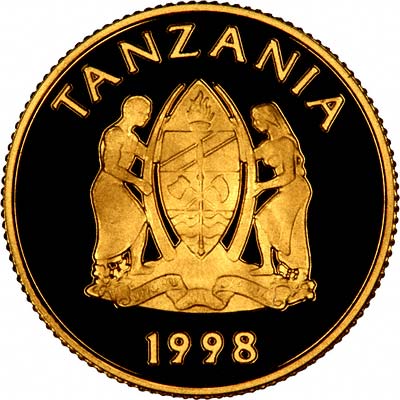 A sustained slump in gold pricesthreatens to shut mines and curb investment in Tanzania,Africa’s fourth-largest producer of the metal, a senior official in the Ministry of Energy and Minerals said.
A sustained slump in gold pricesthreatens to shut mines and curb investment in Tanzania,Africa’s fourth-largest producer of the metal, a senior official in the Ministry of Energy and Minerals said. “We are concerned that as the price of gold continues to drop it will discourage future investment,” Ally Samaje, acting mineral commissioner, said in an interview yesterday in the commercial capital, Dar es Salaam. “If this continues, there will be a point when companies can’t operate and mines will close.”
Gold slumped 13 percent over two days, the biggest drop since January 1980 as the U.S. economy strengthened and the Federal Reserve policy makers signaled that stimulus may be scaled back, denting demand for the metal as a haven. Gold accounts for about 35 percent of Tanzania’s export earnings and the government is seeking to quadruple the contribution of mining over the next 12 years from 2.3 percent of gross domestic product currently.
African Barrick Gold (ABX) Ltd., the biggest producer of the metal in Tanzania, operates four mines in the country, whileAngloGold Ashanti Ltd. (ANG) has one. Resolute Mining Ltd. (RSG), which owns the Golden Pride Mine that opened in 1998, plans to end mining operations there by June, according to its website.
“The falling of gold prices means that we will miss out on significant revenue, not only general revenue but also corporate taxes go down,” Samaje said. “We haven’t felt the impact yet so we haven’t started to make noise.”
Mining Royalties
The government has amended rules in recent years to derive more benefit from natural endowments. It raised royalties on minerals in 2010, including gold, to 4 percent from 3 percent and gave the government shareholding rights in future mining projects.Tanzania has an estimated 40 trillion cubic feet of natural gas reserves, mines the world’s only known tanzanite deposit at the foot of Mount Kilimanjaro and has nickel, iron ore, coal, diamond and tin reserves.
The value of Tanzania’s gold exports declined 8 percent to $2.09 billion in the 12 months through February from $2.26 billion a year earlier, according to the central bank.
“Gold prices dropping are not only a concern to the Ministry of Energy, they are a concern to the whole nation,”Samaje said. “We will suffer if this decrease persists.”
The price of gold, which rallied for the past 12 years in the longest gain in at least nine decades, has lost 28 percent since climbing to a record $1,921.15 an ounce in September 2011. It rose as much as 4 percent to $1,403.55 an ounce in Londonyesterday.
Tanzania is concerned that gold mining companies will take cost-cutting measures and trim output amid falling demand for the precious metal, Samaje said.
“So far we haven’t experienced any impact from the drop of gold prices,” he said. “We are still seeing exploration activities and demand for investment. We have seen revenue on an upward trend. We will see if this changes in the next quarter. We haven’t yet felt the pinch.”
Source: Bloomberg
No comments:
Post a Comment